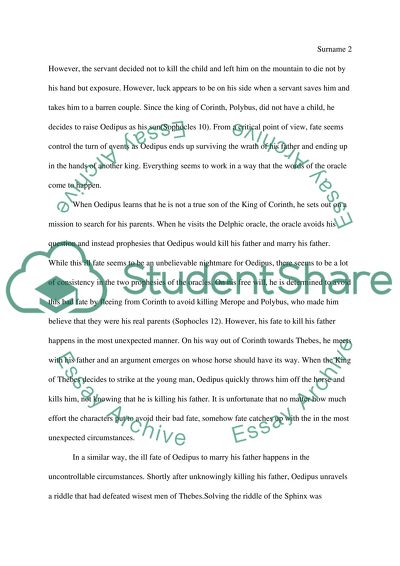Cite this document
(“Oedipus: An Exploration of Fate Research Paper Example | Topics and Well Written Essays - 1750 words”, n.d.)
Retrieved from https://studentshare.org/literature/1664024-oedipus-an-exploration-of-fate
Retrieved from https://studentshare.org/literature/1664024-oedipus-an-exploration-of-fate
(Oedipus: An Exploration of Fate Research Paper Example | Topics and Well Written Essays - 1750 Words)
https://studentshare.org/literature/1664024-oedipus-an-exploration-of-fate.
https://studentshare.org/literature/1664024-oedipus-an-exploration-of-fate.
“Oedipus: An Exploration of Fate Research Paper Example | Topics and Well Written Essays - 1750 Words”, n.d. https://studentshare.org/literature/1664024-oedipus-an-exploration-of-fate.


